In President (so-called) Biden’s shameful non-primetime address to the nation rationalizing the grotesque failure he has perpetrated upon Afghanistan and American credibility, he blamed just about everyone except himself. As I posted yesterday, see Joe Biden’s Speech Was a Mardi Gras of Blaming Others but It Ignored the Last 72 Hours in Afghanistan, the truth or falsity of his statements had nothing to do with the events of the past four days. Having said that, just because a doddering Biden was engaged in a bacchanalia of buck-passing doesn’t mean he didn’t have a point. Let’s look at one allegation that is getting a lot of play on the pro-Biden side.
If anything, the developments of the past week reinforced that ending U.S. military involvement in Afghanistan now was the right decision.
American troops cannot and should not be fighting in a war and dying in a war that Afghan forces are not willing to fight for themselves. We spent over a trillion dollars. We trained and equipped an Afghan military force of some 300,000 strong — incredibly well equipped — a force larger in size than the militaries of many of our NATO allies.
We gave them every tool they could need. We paid their salaries, provided for the maintenance of their air force — something the Taliban doesn’t have. Taliban does not have an air force. We provided close air support.
We gave them every chance to determine their own future. What we could not provide them was the will to fight for that future.
There’s some very brave and capable Afghan special forces units and soldiers, but if Afghanistan is unable to mount any real resistance to the Taliban now, there is no chance that 1 year — 1 more year, 5 more years, or 20 more years of U.S. military boots on the ground would’ve made any difference.
And here’s what I believe to my core: It is wrong to order American troops to step up when Afghanistan’s own armed forces would not. If the political leaders of Afghanistan were unable to come together for the good of their people, unable to negotiate for the future of their country when the chips were down, they would never have done so while U.S. troops remained in Afghanistan bearing the brunt of the fighting for them.
This has a ring of truth about it. Before dissolution began, the Afghan military was composed of about 330,000 men in an air force, army, national constabulary, and paramilitary ‘anti al-Qaeda’ groups; by way of comparison, in NATO, only the US and Turkey have larger military establishments. They were well equipped. By Central Asian standards, they were well trained and supplied. Their salaries were very competitive. We spent upwards of $88 billion training and equipping that Army since 2002. So how were they routed by no more than 75,000 poorly armed, untrained, and part-time Taliban fighters? Were they just poltroons? Or was there something deeper at play>
Politico offers a partial answer to that question today. I say partially because many, many factors prevented the Afghan Army from ever generating combat power in proportion to its size and equipment (see this post by an acquaintance of mine with extensive experience in Afghanistan). The article is titled What America Didn’t Understand About Its Longest War.
I have found no single answer to why we lost the war. While various explanations address different parts of the puzzle, the one I want to highlight here can perhaps be seen most clearly in the conversations I’ve had with the Taliban themselves, often in their native Pashto. “The Taliban fight for belief, for janat (heaven) and ghazi (killing infidels). … The army and police fight for money,” a Taliban religious scholar from Kandahar told me in 2019. “The Taliban are willing to lose their head to fight. … How can the army and police compete?”
The Taliban had an advantage in inspiring Afghans to fight. Their call to fight foreign occupiers, steeped in references to Islamic teachings, resonated with Afghan identity. For Afghans, jihad — more accurately understood as “resistance” or “struggle” than the caricatured meaning it has acquired in the United States — has historically been a means of defense against oppression by outsiders, part of their endurance against invader after invader. Even though Islam preaches unity, justice and peace, the Taliban were able to tie themselves to religion and to Afghan identity in a way that a government allied with non-Muslim foreign occupiers could not match.
The very presence of Americans in Afghanistan trod on a sense of Afghan identity that incorporated national pride, a long history of fighting outsiders and a religious commitment to defend the homeland. It prodded men and women to defend their honor, their religion and their home. It dared young men to fight. It sapped the will of Afghan soldiers and police. The Taliban’s ability to link their cause to the very meaning of being Afghan was a crucial factor in America’s defeat.
This explanation has been underappreciated by American leaders and experts, myself included. We believed things were possible in Afghanistan — defeat of the Taliban or enabling the Afghan government to stand on its own — that probably were not. That doesn’t necessarily mean that we should have abandoned Afghanistan long ago, given what we knew at the time. It does mean that the strategy could have been better managed to avoid expending resources on objectives that were unlikely to be attained. Less money could have been spent. Fewer lives could have been lost. But that America couldn’t have done much more than muddle along for years in the face of a relentless enemy is the unsatisfying, sometimes frustrating coda to our longest war.
The writer goes on to observe that the Taliban leadership was no less corrupt, inept, or cowardly than the Afghan national government. Yet, Afghan military units were routinely routed by much inferior Taliban units. While the Taliban could count on a regular stream of recruits from inside Afghanistan and the Federally Administered Tribal Areas (FATA) in Pakistan, the Afghan military was plagued by desertions and the unsettling habit of surrendering en masse to inferior Taliban forces.
Then he goes to draw, I think, a perfectly wrong conclusion.
A popular tale related to me in 2018 by an Afghan government official illuminates the reality:
An Afghan army officer and a Taliban commander were insulting each other over their radios while shooting back and forth. The Taliban commander taunted: “You are puppets of America!” The army officer shouted back: “You are the puppets of Pakistan!” The Taliban commander replied: “The Americans are infidels. The Pakistanis are Muslims.” The Afghan officer had no response.
Or in the shorter Afghan proverb form: “Over an infidel, be happy with a weak Muslim.”
The literature to date has respectfully neglected this explanation — in a country where people have eagerly tried to convert me to Islam, where religion defines daily life, and where insults to Islam instigate riots. The largest popular upheaval I witnessed firsthand in Afghanistan was not over the government’s mistreatment of the people or Pakistani perfidy. It was hundreds of angry villagers marching miles to the dusty bazaars of Garmser, protesting a rumor that an American had damaged a Koran.
As I touched on in my post, Afghanistan Didn’t Have to End This Way, but We Made Sure It Did, we tried to remake Afghan society into some kind of Central Asian parody of Western wokeness. Sure our status as non-Muslims was a sore point, but I would argue that the real issue was that attacking traditional values on so many levels was the motivator. The things that we trumpeted as successes, like schools for girls, women working in offices with men, and women running for elective office, were anathema to most of Afghanistan. Things that got rave reviews in our media, like women in frontline combat units, simply underscored the alien nature of our military and posed a direct threat to religion and customs. We imposed a foreign system of elected government on them, and we prevented them from recalling their king from exile. You don’t have to agree with their point of view on these things, but you have to acknowledge that it exists and is part of the landscape.
Painting this as an essentially religious issue serves to cover up the degree to which our, and I gag as I use the phrase, “cultural imperialism” alienated the Afghans, turned friends into enemies, and made those Afghans who threw in their lot with us outcasts in their communities. The ferocity with which a people will fight for home and hearth, for religion and traditions when those things are threatened, is well known. A man fighting for something he perceives as his own is a much more courageous and tenacious opponent than a man motivated solely by a paycheck. But, again, this is not news. A couple of thousand years ago, a Jewish rabbi said:
But the hireling, and he that is not the shepherd, whose own the sheep are not, seeth the wolf coming, and leaveth the sheep, and flieth: and the wolf catcheth, and scattereth the sheep: 13And the hireling flieth, because he is a hireling: and he hath no care for the sheep.
The Taliban were defending an existential threat to their culture and faith. The Afghan Army wasn’t. The Taliban were willing to die to defend that culture and faith. The Afghan Army never had real skin in the game because they were culturally more sympathetic to the Taliban than to the United States. Once the power behind the central government left, the Afghan Army, individually and in units, made its peace with the Taliban. This is really where Biden misses it. He says:
We gave them every chance to determine their own future. What we could not provide them was the will to fight for that future.
No, we didn’t give them the chance to determine their own future. We gave them the future that we wanted them to have, a future that was foreign and undesirable. We paid them to fight for that future, and in the end, they decided they’d rather take their chances with the Taliban and a religion and way of life that was familiar to them.
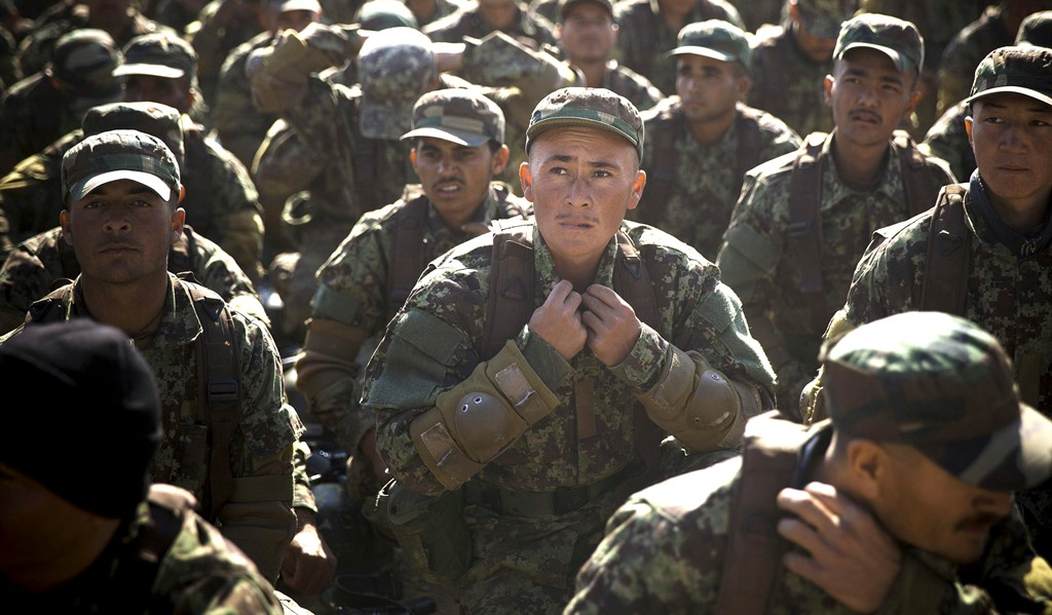

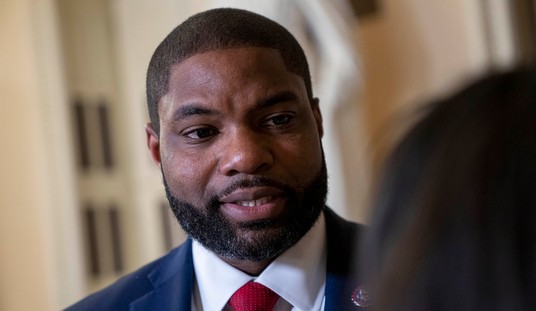
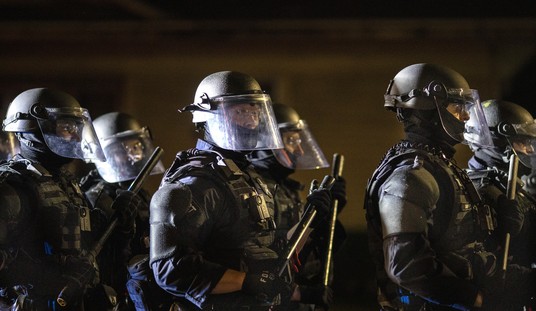

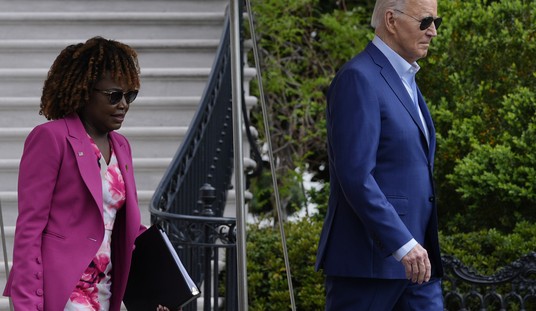
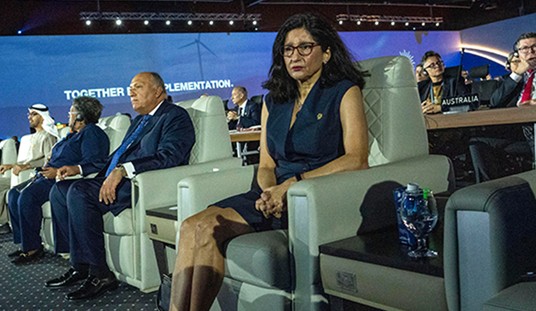






Join the conversation as a VIP Member